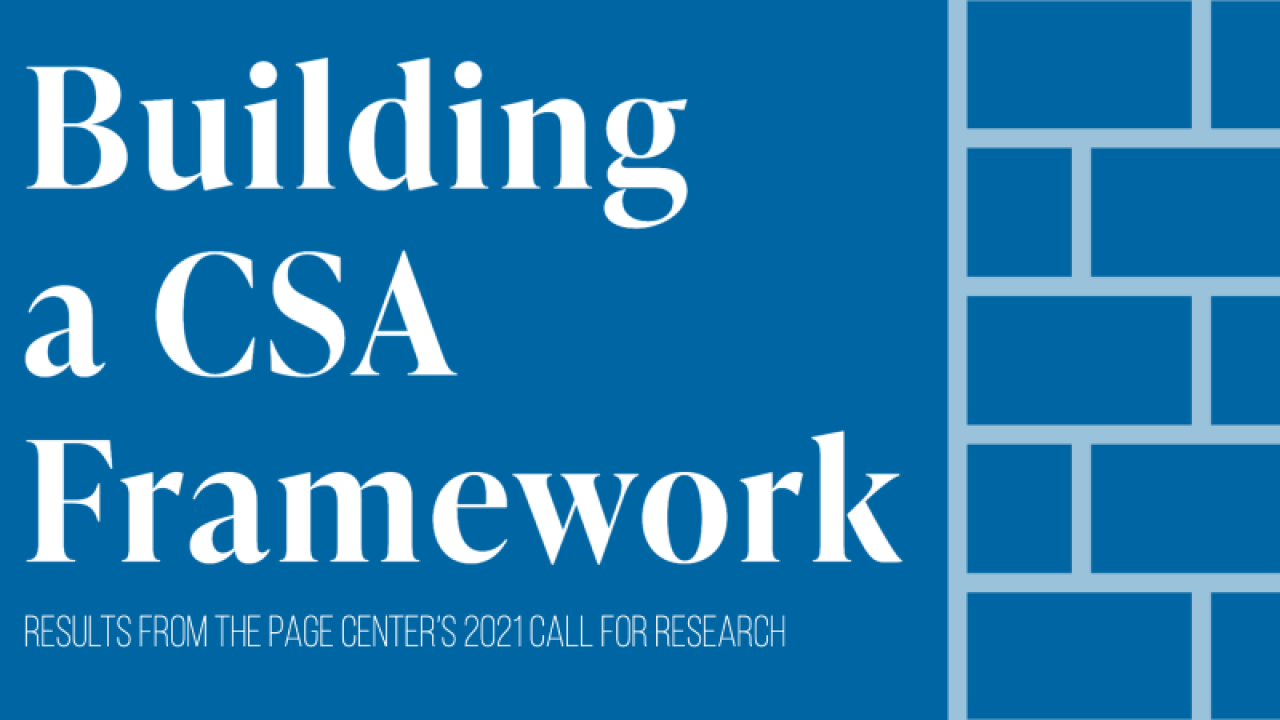March 24, 2023
Developing an audience-centric framework of CSA strategy

By Jiun-Yi Tsai, Northern Arizona University, Shupei Yuan, Northern Illinois University, and Ioana A. Coman, Texas Tech University
Most Americans expect companies to take a stance on hot-button issues; how and when firms should respond becomes the next burning question. We argued that audience expectations and perception of authenticity should be the center of consideration when planning the responding actions. We developed an audience-centric framework to guide practical decisions for CSA approaches and examined the framework with a mixed-method approach.
With Page Center support, we conducted two studies: (1) an online survey and (2) virtual focus group interviews.
For the first study, a total of 817 participants in the United States completed an online survey, and the demographics of participants closely matched the U.S. adult population. In this survey questionnaire, we investigated how two forms of expectations, normative and predictive, are associated with motivating cognitions, attitudes toward CSA social impacts, and buying intentions.
In addition, we used open-ended questions to guide participants to recall a company that took a stance on supporting or opposing public issues. Next, we instructed them to explain the reasons for recollecting issues the company has commented on.
We analyzed responses to open-ended questions and identified four clusters of audience responses to brand activism:
• Legitimate engagement
• Identity alignment
• Emergent norm
• Obscure practice
The public was more aware of brand activism related to race, LGBTQ+, and climate change partly because multiple large consumer-facing companies collectively acted on these issues, gaining more citizen attention. The large platform companies have enabled the rapid amplification of their CSA stances on news coverage and social media feeds.
Additionally, results demonstrated that predictive expectations are a consistent antecedent to company-issue fit, perceived issue importance and personal approval. In contrast, the associations between normative expectations, the perceived company-issue congruence, and cognitive involvement are contingent on issue types.
Perceived fit and cognitive involvement positively predict attitudes toward the social impacts of CSA. “Buycotting” intentions are only determined by individuals’ agreement with firms’ stances on issues.
To complement quantitative modeling results, we were also interested in understanding qualitative insights from everyday consumers. Study 2 included eight virtual focus groups with 25 participants of various socio-economic and political backgrounds.
In each session, we explored how consumers perceive corporate social advocacy (CSA) and authenticity in CSA campaigns and the potential consequences of (in)authenticity in CSA initiatives. Preliminary findings indicated that these consumers perceive a CSA campaign/initiative as authentic if the following elements characterize it:
a) Sincerity
b) Consistency
c) Company belief in CSA engagement
d) Taking risks
Overall, our research may not provide one straightforward answer to the question of “what corporations should do.” Decisions to advocate for issues often rely on intuitions or are in consort with industry competitors. The rich findings from the two studies provide valuable insights to guide these decisions.
Taking tangible actions to join issue niches of high attention and high support (e.g., climate change) is a starting point for reinforcing legitimacy. To address issues in the identity alignment category (e.g., race equality and LGBTQ+ rights), leaders will need to anticipate a high level of media and public scrutiny with mixed reactions because the publics increasingly want to know how companies stand on these salient topics.
Remaining silent probably would lose the opportunities to establish organizational identities and to be seen as recognized actors in salient issues. As such, business decisions and communication strategies to participate in discourse within these issue niches will consider the alignment between the company’s values and the core audience segment’s identities.
For CSA to be regarded as authentic and genuinely benefiting the common good, it is necessary to seek audience approval and communicate reasons for audiences to understand the personal importance and the connections between the company and the issue. Understanding consumers’ realistic expectations of CSA and pertinent cognitive factors in shaping attitudes and buying intentions will be helpful for practitioners to think about issue-specific communication strategies.
This research was funded by a 2021 Page/Johnson Legacy Scholar Grant from a call for proposals on corporate social advocacy. For more information, contact Jiun-Yi Tsai at jiun-yi.tsai@nau.edu, Shupei Yuan at syuan@niu.edu or Ioana A. Coman at ioana.coman@ttu.edu.
